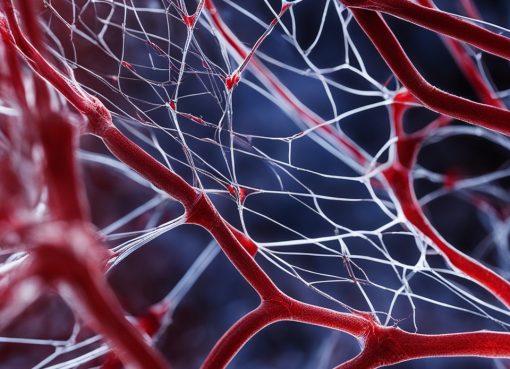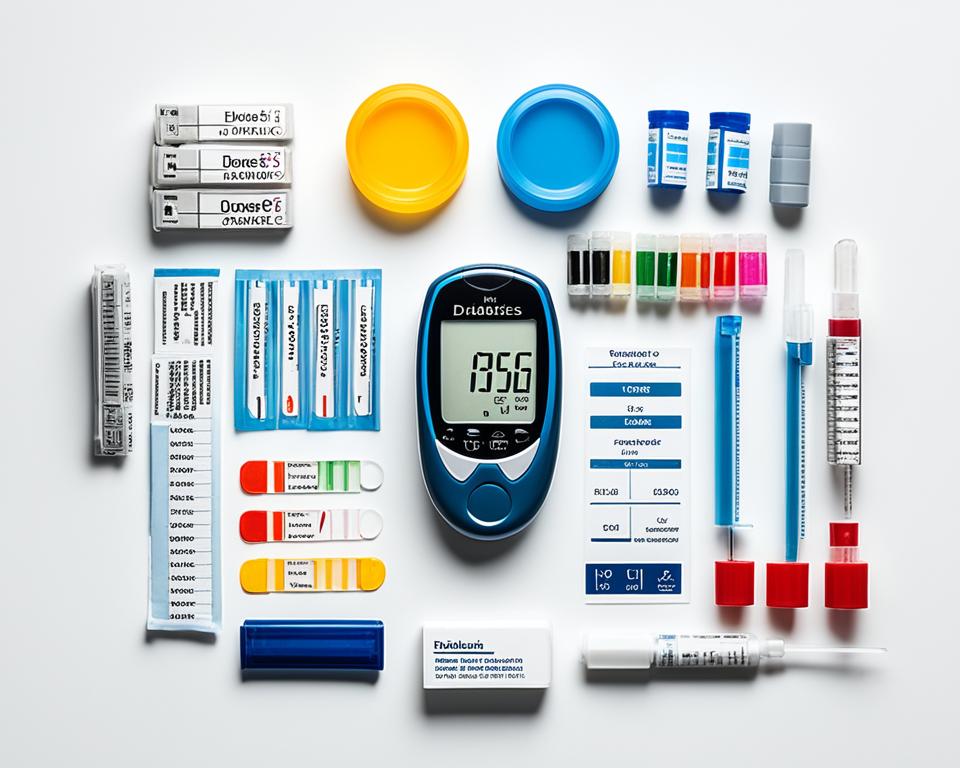Drug Detox: Safe and Effective Treatment Options

Substance abuse can be very harmful to both the person using drugs and their family. But, there is hope for recovery. Drug detox is a key step in getting better, offering a safe way to stop using drugs.
This guide covers drug detox, including different treatment options, why getting professional help is important, and how to handle withdrawal symptoms. It aims to help people make informed choices and start their recovery journey with confidence.
Read interesting things at : intarajyuku
Key Takeaways
- Drug detox is a critical first step in the addiction recovery process, providing a safe and effective way to break free from substance abuse.
- Professional help is essential during the detox process to ensure the well-being and safety of individuals going through withdrawal symptoms.
- Inpatient and outpatient detox programs offer different levels of care and support, allowing individuals to choose the option that best fits their needs.
- Comprehensive treatment, including medically-assisted detox and counseling, can significantly improve the chances of long-term sobriety.
- Aftercare and relapse prevention strategies are crucial for maintaining sobriety and rebuilding relationships after the detox process.
Understanding the Need for Drug Detox
Substance abuse can cause huge problems, both for the body and mind. When people become hooked on drugs or alcohol, it’s hard to stop. This is why drug detox is key – it helps people safely beat their addiction.
Substance Abuse and Its Consequences
Using drugs for a long time can harm your health, like causing organ damage or heart problems. It can also hurt your relationships, your wallet, and even get you into legal trouble. Getting help for addiction is key to avoiding these bad outcomes.
The Importance of Professional Help
- Trying to detox on your own can be risky and hard.
- Doctors and addiction experts can manage withdrawal symptoms and keep an eye on your health. They also create a plan for recovery.
- They can also tackle the mental and emotional reasons behind drug use, which helps you stay sober for good.
| Consequence | Description |
|---|---|
| Physical Health Risks | Organ damage, heart problems, and brain issues |
| Social and Emotional Consequences | Broken relationships, money problems, and legal issues |
Getting help with drug detox and addiction treatment is vital for those fighting substance abuse. With the right support, people can beat addiction and get their health back.
Types of Drug Detox Programs
There are many drug detox program options for those seeking help with substance abuse. These programs help people safely get through withdrawal and prepare for recovery. The main types are inpatient detox centers and outpatient detox clinics.
Inpatient Detox Centers
Inpatient detox centers provide 24-hour care for detox. They offer a safe place where people can focus on detox without daily distractions. Doctors and nurses watch over patients, checking their health during withdrawal.
This close care reduces the risks of stopping substances suddenly. It makes the detox process safer and more comfortable.
Outpatient Detox Clinics
Outpatient detox clinics let people get treatment while living their daily lives. Patients visit for scheduled appointments and get help with their medications. These clinics are good for those with less severe addiction and a strong support system at home.
Even though they offer more flexibility, outpatient programs still have professional medical help and counseling. This helps people through detox.
Choosing between inpatient and outpatient detox depends on the person’s needs and health. Talking to an addiction treatment expert can help pick the best program.
| Inpatient Detox Centers | Outpatient Detox Clinics |
|---|---|
| 24-hour supervised care | Scheduled appointments |
| Comprehensive medical support | Medication management |
| Structured environment | Maintain daily routines |
| Ideal for severe addiction | Suitable for mild-moderate addiction |
Preparing for a Successful Detox
Starting a drug detox is a big step towards recovery. It’s important to get ready both physically and mentally. Getting ready helps make the detox go smoothly and sets you up for long-term sobriety.
Preparing for Drug Detox: Key Considerations
Here are some important things to think about when getting ready for drug detox:
- Detox Readiness: Check if you’re truly ready and committed to detox. Saying you want to change is a big first step.
- Medical Evaluation: Talk to a doctor to understand what you need and any health issues that might come up during detox.
- Logistical Planning: Make arrangements for time off, get a ride to and from detox, and make sure you have people who support you.
The Detox Process: A Step-by-Step Approach
Knowing what the detox process involves can ease your worries and set clear expectations:
- Initial Assessment: Doctors will look at your history with substances, your health, and how you’re feeling overall.
- Medically-Assisted Withdrawal: Doctors will help you slowly stop using the substance in a safe way.
- Therapy and Counseling: You’ll go to therapy to understand why you used substances and how to stay sober.
- Aftercare Planning: You’ll make a plan for ongoing support and how to avoid using substances again after detox.
Getting ready for drug detox increases your chances of a successful recovery. Remember, getting help from professionals and having a supportive network is key to your recovery.
| Preparing for Drug Detox | Detox Readiness Checklist |
|---|---|
|
|
“Preparation is the key to success in any endeavor. The same holds true for those embarking on a drug detox journey.”
Detox for Drugs: A Comprehensive Approach
Overcoming substance abuse is a big challenge that needs a full plan. At the core, this plan includes medically-assisted detox and counseling during detox. These steps help with both the body and mind aspects of addiction. They set the stage for a lasting recovery and a healthier life.
Medically-Assisted Detox
Medically-assisted detox is key in treating addiction. Doctors and nurses help people get through tough withdrawal symptoms safely. This method eases physical pain and lowers the risk of serious health problems. It makes detox safer and more effective.
Counseling and Therapy
Counseling and therapy are also crucial in treating addiction. People work with experts to understand their emotional and mental issues. Through therapies like cognitive-behavioral therapy (CBT) and group counseling, they learn new ways to cope. This helps them build strength and a solid base for recovery.
Combining medically-assisted detox with counseling helps people fight addiction’s complex issues. This approach sets the stage for a lasting recovery. It helps people take back their health and happiness.
Managing Withdrawal Symptoms
Going through drug detox is tough because people face many withdrawal symptoms. These can be physical and mental. Knowing about these symptoms and how to handle them is key for a successful detox.
Physical Symptoms
Physical withdrawal symptoms from drugs can be tough and differ by substance. Symptoms include nausea, vomiting, shaking, sweating, muscle pain, and headaches. In bad cases, people might have seizures or face serious health risks. With the right medical care and medication, these symptoms can be eased, making detox safer and more comfortable.
Psychological Symptoms
Drug withdrawal also affects the mind deeply. People may feel strong cravings, anxiety, sadness, anger, and trouble sleeping. These mental issues can make it hard to stay off drugs. Counseling, therapy, and support groups are very helpful in overcoming these challenges and staying sober for good.
| Common Physical Withdrawal Symptoms | Common Psychological Withdrawal Symptoms |
|---|---|
|
|
Understanding the physical and mental symptoms of drug detox helps people prepare for the tough times ahead. With the right support and treatment, it’s possible to beat drug withdrawal and start a journey towards recovery.
Aftercare and Relapse Prevention
Recovery from addiction is a long journey. It doesn’t stop after detox. Aftercare and relapse prevention are key to keeping up the progress made during detox. They help prevent future relapses.
Ongoing Support Groups
Support groups are vital for those in recovery. They offer a safe place to share stories and get support. Support groups are key in preventing relapse and helping with aftercare.
- Peer-led groups like AA or NA connect people with others who know the recovery struggle.
- Family groups help loved ones understand recovery and heal together.
- Specialized groups cater to specific needs, offering unique support.
Lifestyle Changes
Healthy lifestyle changes are crucial for staying sober. These changes help build a strong base for long-term recovery.
- Build a strong support network of family, friends, and peers.
- Keep a regular sleep schedule, exercise, and eat well for your body and mind.
- Manage stress with meditation, yoga, or counseling to avoid relapse.
- Avoid risky places or activities and find new, healthy hobbies.
Focus on addiction aftercare, relapse prevention, support groups, and lifestyle changes. This helps you stay committed to sobriety and boosts your chances of success.

“The road to recovery is not a straight line; it’s a journey with ups and downs. But with the right support and lifestyle changes, you can achieve and maintain lasting sobriety.”
Choosing the Right Detox Program
Choosing a detox program can feel like a big task. But, taking your time to look at different options can really help. You should think about the level of care and the treatment methods used.
First, think about how much care you need. Inpatient detox centers have doctors and nurses watching over you all the time. This is great for those with serious withdrawal symptoms. Outpatient clinics are better for people with less severe addictions who need a flexible schedule.
It’s important to check out the treatment methods too. Look for places that use a well-researched approach. They should offer both medical help, counseling, and activities to help you heal. This way, you can deal with the reasons behind your addiction and learn how to stay sober in the long run.
| Factor | Inpatient Detox | Outpatient Detox |
|---|---|---|
| Level of Care | 24/7 medical supervision and support | More flexible schedule, less intensive monitoring |
| Treatment Approaches | Comprehensive, evidence-based methods including medication, therapy, and support groups | Varies, may have a more limited range of treatment options |
| Suitability | Recommended for severe addictions and complex withdrawal symptoms | Suitable for mild to moderate addictions with stable home environments |
By looking at different detox options and picking one that fits your needs, you can boost your chances of a successful recovery. The right detox program can be the start of a healthier life ahead.
The Role of Family and Loved Ones
When a loved one fights addiction, family support is key to their recovery. Family and friends offer emotional, practical, and moral help. This support is crucial for those on the path to sobriety.
Addiction deeply affects families, but they can be a big help in recovery. By understanding addiction and how to support loved ones, families can ease the detox and sobriety journey. They can help keep individuals on the path to recovery.
Offering Emotional Support
Family support is vital, especially in emotional ways. People in detox may feel scared, anxious, guilty, or ashamed. Families can make a safe space where their loved ones feel valued and supported.
Practical Assistance
Family help can also be practical. They can arrange rides to treatment, do chores, or make sure there are healthy meals and meds. This helps the person focus on getting better.
Participating in Treatment
Many detox programs value family involvement. They invite families to join therapy, support groups, or workshops. This helps families learn about addiction and how to cope.
| Family Involvement in Detox | Supporting Loved Ones in Recovery | Addiction’s Impact on Families |
|---|---|---|
| Providing emotional support | Coordinating practical assistance | Profound emotional and financial strain |
| Participating in treatment programs | Encouraging healthy lifestyle changes | Strained relationships and communication |
| Advocating for their loved one’s needs | Celebrating small successes | Feelings of guilt, shame, and helplessness |
Getting involved in recovery helps families and their loved ones. It helps them face addiction’s challenges and build a strong base for sobriety.
“The road to recovery is not a solo journey. Family support can make all the difference in helping individuals achieve long-term success in overcoming addiction.”
Overcoming Stigma and Seeking Help
Getting help for substance abuse can feel scary because of the stigma around it. But, it’s important to know that addiction is a treatable medical issue. Asking for help is a brave step towards breaking the cycle of addiction.
Many people don’t seek help because they’re afraid of being judged. Society often sees addiction as a sign of weakness or lack of willpower. This overcoming addiction stigma stops people from getting the help they need.
“Addiction is not a character flaw or a moral failing – it’s a chronic medical condition that requires compassionate, evidence-based treatment.”
To seek help for substance abuse, put your health first. Talk to trusted doctors, support groups, or addiction centers to find help. You’re not alone, and there are people ready to help you live a healthier life.
- Understand that addiction is a treatable medical condition, not a personal weakness.
- Seek support from healthcare providers, support groups, or addiction treatment centers.
- Surround yourself with a network of understanding and non-judgmental individuals.
- Celebrate small victories and recognize that recovery is a continuous process.
By fighting the stigma and getting the right help, you start a journey of healing and growth. Remember, your health and recovery are important. You deserve a life free from addiction.

Substance Abuse Treatment: A Lifelong Journey
Recovery from substance abuse is a long-term journey, not just a one-time fix. It takes ongoing commitment and support to stay on the path to sobriety and rebuild relationships. The key to a lifelong recovery journey is embracing new ways to cope, developing healthy habits, and building a strong support network.
Maintaining Sobriety
Getting sober is a big step, but it’s just the start. Staying sober requires constant effort and learning how to prevent relapse. This means going to support groups, seeing a therapist, and changing your lifestyle to avoid things that might trigger a relapse.
Rebuilding Relationships
Substance abuse can hurt relationships. Getting back on track means fixing broken connections, rebuilding trust, and learning to talk openly. This might mean therapy for you or your family, making amends, and working to rebuild trust slowly.
Recovery is a journey, not a finish line. By focusing on lifelong recovery journey, maintaining sobriety, and rebuilding relationships in recovery, you can find happiness and a new purpose in life.
“The road to recovery is not a sprint, but a marathon. With determination and support, you can overcome the challenges and create a fulfilling life in sobriety.”
| Key Aspects of Lifelong Recovery | Description |
|---|---|
| Maintaining Sobriety | Developing relapse prevention strategies, attending support groups, and implementing lifestyle changes to avoid triggers and manage cravings. |
| Rebuilding Relationships | Mending broken bonds, re-establishing trust, and learning to communicate openly and honestly through individual or family therapy. |
| Continuous Commitment | Recognizing that recovery is a lifelong journey, not a one-time event, and maintaining a dedicated mindset to overcome challenges. |
Resources for Addiction Recovery
Recovering from addiction can be tough, but you’re not alone. There are many resources and support services to help you beat substance abuse and take back your life. This guide will show you the support systems that can really help.
National Addiction Helplines
- SAMHSA National Helpline: 1-800-662-HELP (4357)
- National Suicide Prevention Lifeline: 1-800-273-TALK (8255)
- Veterans Crisis Line: 1-800-273-8255 (Press 1)
Online Addiction Support Resources
- Addiction.com – Comprehensive addiction information and treatment options
- Drugabuse.gov – National Institute on Drug Abuse’s online resource
- Recoverydharma.org – Peer-led addiction recovery support community
Local Treatment and Support Services
Look to your community for personalized help in recovering from addiction. You can find:
- Inpatient and outpatient rehabilitation centers
- Therapists and counselors specializing in substance abuse
- Support groups, such as Alcoholics Anonymous and Narcotics Anonymous
- Faith-based organizations offering addiction recovery programs
| Resource | Contact Information | Services Offered |
|---|---|---|
| ABC Addiction Treatment Center | 123 Main Street, Anytown, USA Phone: (555) 555-1234 | Inpatient detox, outpatient therapy, and sober living |
| XYZ Recovery Clinic | 456 Oak Avenue, Somewhere, USA Phone: (555) 555-5678 | Medically-assisted treatment, counseling, and support groups |
You’re not alone in your fight against addiction. With the right support and resources, you can beat addiction and take back your life. Start your journey today and check out the many addiction recovery resources, support services, and help for substance abuse out there.
Conclusion
In this article, we looked at the important parts of drug detox. We saw why getting professional help is key and the different ways to treat addiction. The main point is that asking for help is a big step towards getting better. It helps people deal with withdrawal safely and sets the stage for staying sober.
Drug detox offers both inpatient and outpatient options. These methods tackle the physical and mental sides of addiction. With the help of medical detox, counseling, and support, people can get past the tough times and start their recovery journey.
When thinking about your own or a loved one’s addiction treatment, remember it’s a tough road but possible. Use the resources, advice, and community support out there. This article’s summary and advice can guide you on your path to a healthier life.



Leave a Comment